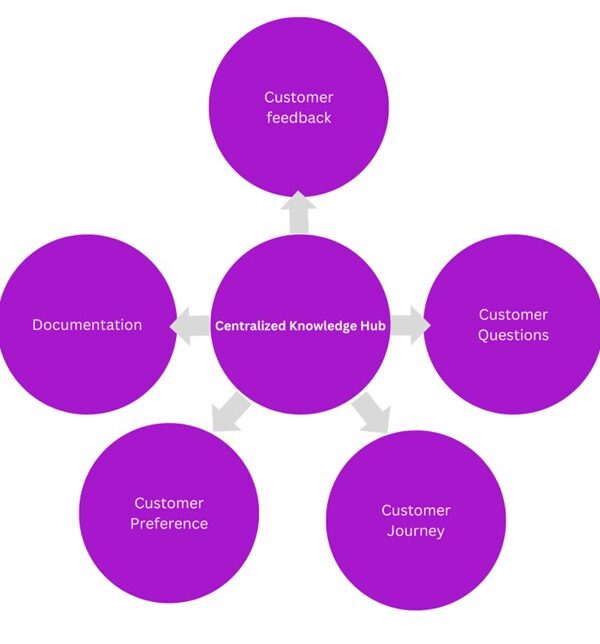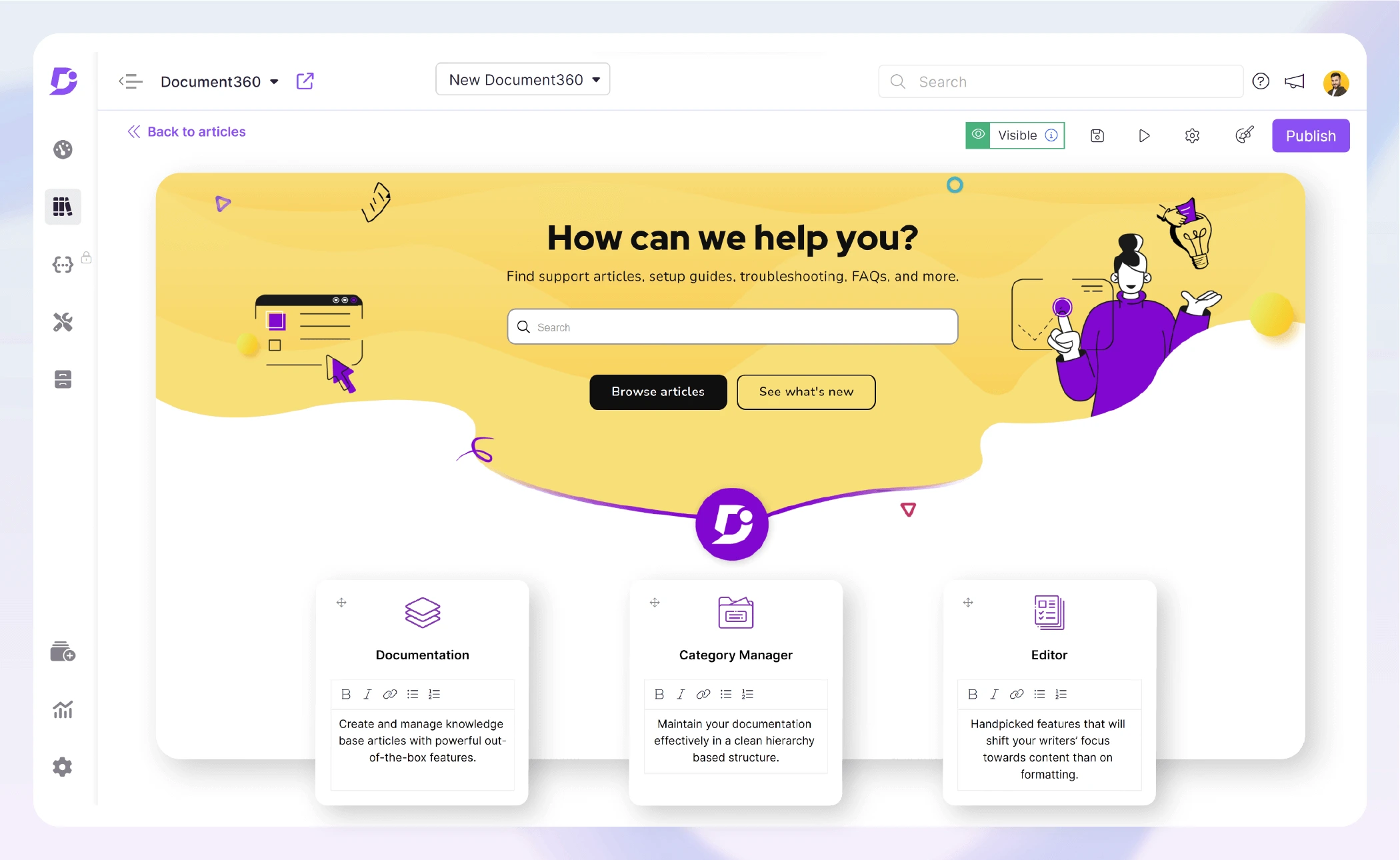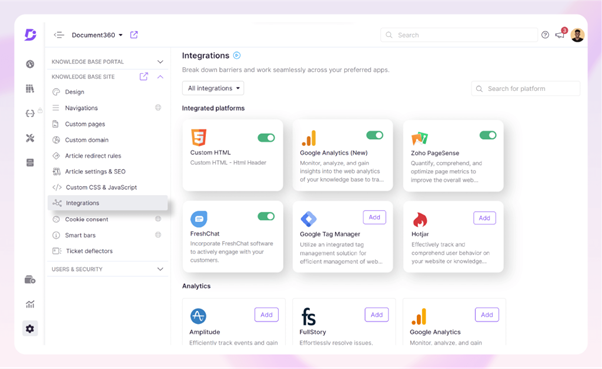You may already have heard of Knowledge Management. It’s become an essential field of practice for profit-driven businesses and non-profit organizations alike, since you can gain many efficiencies through retaining, preserving, and sharing knowledge.
We all know that customers are the lifeblood of any business. So, what is your knowledge about those customers? Customer-centricity is no good if you’re making decisions in the dark without knowing who your customers are.
Knowledge in your company is a valuable intangible asset. Knowledge pertaining directly to your customers provides an immense competitive advantage.
However, what about Customer Knowledge Management?
What is Customer Knowledge Management?
Quite simply, knowing about customers. Customer Knowledge Management drives innovation and growth. Some data you might want to gather could be demographics, past purchases.
Customer knowledge management (CKM) has several different elements, which we’ll explore later. CKM is concerned with learning about customers directly and using those insights to make better business decisions.
The more you know about your customers, the better you can tailor your products and services to their needs. Most businesses collect customer data, but very few actually utilize it to make improvements that will positively impact profits.
- Knowledge about customers
- Knowledge from customers
- Knowledge for customers
You’ve also heard of Customer Relationship Management (CRM). CKM is where Knowledge Management (KM) and CRM meet. The entire purpose of CKM is to provide better, more personalized experiences for customers based on data. The core of this approach is bringing your business closer to customers, preserving your knowledge about them, and utilizing the knowledge for business improvements.
Importance of Customer Knowledge Management in Business
If you’re in the business of Customer Relationship Management, you’ll understand why it’s so important to take things one step further and actually document your knowledge about customers.
Provides Personalized Customer Experience
76% of customers state that they are more willing to do business with brands that personalize. If you don’t engage in CKM, you’re failing customer expectations and lagging behind the competition. Businesses that use customer data and knowledge responsibly can expect to see increased customer satisfaction.
Powers the Customers with Self-service
When you understand the questions customers are asking, you can use self-service to boost customer support metrics. 67% of customers want to use self-service to solve problems and resent your business if you don’t provide it.
Twitter co-founder Evan Williams says that customers choose the products and brands that provide the easiest route to getting what they want. This is one of the secrets behind the success of the social media platform, now called X. Being able to help customers in a few clicks is better than making them wait on hold.
Assists in Making Data-driven Decisions
Decisions made through hunches and instinct don’t often make the most business sense. Utilizing data offers a window into making the most logical, beneficial decisions that result in the outcome you want. Knowledge management involves learning from past experiences and decisions to avoid reinventing the wheel and making the same mistakes.
Data is the historical record of past events within your business – or anything that can be meaningfully measured, anyway. Data analysis helps you uncover past patterns, trends and insights that can inform your future strategy.
Helps to Build Customer-centric Marketing Strategies
Embracing what customers actually want means you can create customer-centric marketing strategies. Collecting insight into customer behaviors, motivations, desires, and wants enables you to target campaigns that inspire them to take action with your products.
Marketing campaigns can become incredibly tailored when you have access to the right data. Any customer-facing role can benefit from the knowledge gained from CKM. Campaigns targeting and speaking to particular customers will be more successful than generic ads that cast a wide net. To achieve this outcome, you must know your customers.
Ensures Exceptional Customer Support and Engagement
On the customer support side, knowledge about your customers means you can provide a better service. For example, if your research shows you that customers really value 24-hour service and self-service support, you can deliver this instead of investing in initiatives that won’t be as well received.
In short, CKM documents your knowledge about customers so you can make your service even better – moving from reactive to proactive. Customers are more engaged and receptive when they sense that your business prioritizes their needs, even after the sale.
Key Components of Customer Knowledge Management
CKM uses the knowledge pillars of Customer Relationship Management (CRM) to develop customer-centric strategies for the business. Customer Knowledge Management can be broken down into three key areas:
Knowledge ABOUT Customers
This is any information that describes your customers, such as demographics, past purchase history, personal data, and so on. This is usually collected automatically by businesses but you can leverage it in CKM. Nearly 70% of customers agree that consensually collecting personal data is a good thing.
Knowledge about customers is important because you can only create a good relationship if you understand your customers.
Knowledge FOR Customers
Any self-service content you produce will belong in this category. It could be information on troubleshooting the products, further information about your company and its policies, products and services, insights into company culture, and more. 67% of customers prefer to use self-service instead of interacting with a company, making that a majority.
Helping customers get more out of your products, which some would say is the true purpose of the business, drives CRM through offering self-service.
Knowledge FROM Customers
Often, customers will give you direct feedback about your products and services that you can use to improve. This knowledge should be systematically captured and actioned. 91% of customers believe companies should fuel innovation by listening to customers, versus hiring a team of experts to achieve the same result.
Developing CRM works better when customers tell you exactly what they think, and you can incorporate these insights into your strategy.
Support-Driven Growth vs Efficiency Gain
Another point to note is using knowledge about customers to drive growth instead of efficiency gains, which might take priority in leaner times. Capturing customer knowledge fuels this growth because support can be used to create more value and earn happier customers. It’s all about boosting revenue with customer service.
This means working with your customers to grow the business instead of cutting services you offer to save money. You recognize that functions such as customer service drive growth by retaining more customers, generating word-of-mouth, and encouraging upsells, among other things.
Find out how Document360 can help you to reduce support tickets!
Book A Demo
Best Practices for Effective Customer Knowledge Management
There’s no single way to follow Customer Knowledge Management principles in today’s information-rich landscape. In order to properly implement Customer Knowledge Management within your business, try following these best practices.
Align Every Team Around Customer Knowledge Management
Customer Knowledge Management happens in support teams but is also a priority for customer success, marketing, sales, and product teams. If CKM takes place across the organization, you have a higher chance of collecting information and data that is actually meaningful.
Every team must understand the importance of CKM. For this to happen, customers must become the focal point of your business over other concerns. If you prioritize customers and make sensible decisions, everything else will fall into place.
Identify the Knowledge You Want to Manage
Gathering all the available knowledge is not the best approach to CKM. Identifying the areas you consider important, such as reasons customers choose your products, common problems, and typical purchasing patterns, are all viable options.
There is theoretically no limit to the knowledge you can collect, but being intentional will help you make sense of and manage your resources. Setting goals for CKM enables you to decide the important types of customer knowledge.
Prioritize Security for Your Knowledge Base
When managing sensitive customer data, opting for a secure knowledge base is key to following regulations and taking your security and privacy responsibilities seriously. Controlling who has access to your knowledge, being able to manage permissions, and offering multi-factor authentication of a security strategy for your knowledge base.
Most solutions will protect your data by offering features such as multi-tiered data security models, adhering to good data governance processes, and encryption.
Access to a Centralized Knowledge Hub
It’s no good gathering your knowledge if no one can access it. This might happen if your knowledge lives in different places. Without a comprehensive resource, your employees are back at square one.
In contrast, you need a centralized knowledge hub that employees or customers can turn to whenever they need an answer. It hurts trust in your knowledge if some content is missing because you haven’t committed to a centralized system. Implementing behavior change and ensuring one technology is adopted or integrated is key.

This means information can flow up and down your business, reaching staff regardless of whether their role is customer-facing or on the ground. Communication flows are improved throughout your business as a result of CKM.
Make the Knowledge Accessible and Searchable
As well as centralizing your knowledge, ensuring users can search and access the knowledge base without friction encourages adoption. It also makes your platform more reliable. When searches return the right results and users have a consistent experience, users turn to your platform as their first port of call every time they want to know more about your customers. It has become the number one resource for customer knowledge.
Modern features like AI improve the reliability of search and enhance knowledge discovery through recommendations. Users benefit from a dynamic search experience that proactively anticipates their needs.
Also Read: Impact Of Documentation On The Release Management Process
Choose the Right Customer Knowledge Management Platform: Document360
In order to launch CKM successfully, you need to choose the right platform to store your knowledge. This will help you achieve the results we have already outlined. Document360 can help in this respect. Although there are other options available, Document360 is an appealing solution as an internal knowledge base that facilitates Knowledge Management.

Here are the features of Document360 you may find useful:
- In-depth analytics to help you improve performance
- Multiple content editors to optimize content production
- AI features to help customers find answers
- AI that helps authors generate new content
- Workflows to help you manage the documentation process
Document360 is simple and yet powerful. If you are planning to create a customer knowledge base,Document360 makes it easy for you to get started. With integrations for popular tools such as Microsoft Teams, Slack, Zendesk, Freshdesk, Intercom and Google Analytics, Document360 provides a holistic experience that supports existing workflows.

How to Improve Customer Experience with Knowledge Management
Overall, using customer knowledge should improve the Customer Experience through business development, allowing your service to adapt to changing customer needs. There’s no point in collecting data if you don’t use it to make improvements for customers. Whether that’s saving money to reinvest back into the business, improving the quality of your support, or providing cost-effective changes to the ways customers can get in touch, your efforts will not go unnoticed.
Poor customer service hurts your business by neglecting customers. Underpinned by Customer Knowledge Management, your company or organization will come to know and understand your customers intimately. More accurate knowledge distinguishes your business from competitors, focusing on profits rather than proactively helping.
Knowledge Management translates into a better Customer Experience through incremental benefits such as more effective service, targeted promotions, increased customer success, and faster responses to critical issues. In short, your business will vastly improve if you utilize Customer Knowledge Management.
Conclusion
Businesses that invest in customer knowledge management follow the path of a customer-centric company. Not only is your knowledge important, but knowledge that relates directly to customers and their preferences has the potential to have the most impact on your business’s development.
The best route to success is using the right tools, deciding which data to collect, improving access to the knowledge base, and generally implementing CKM. The strategy is not hard, but it requires commitment and consistency. While Customer Relationship Management and Knowledge Management are both important, combining them is the most powerful approach to increasing customer satisfaction.
Building relationships and maximizing the impact of knowledge help you attract and retain more customers. Although this is an internal process, customers will certainly notice and reward you with loyalty.




 –
– 

